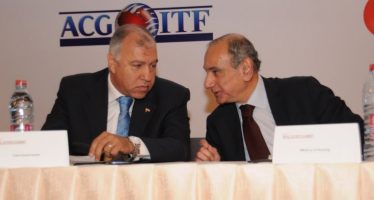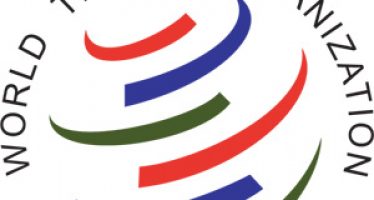How Thailand’s Solar Power Visionary Built an Industry with a Boost from IFC
- One of the winners of this year’s UN Momentum for Change awards has been transforming Thailand’s renewable energy capacity with utility-scale solar farms.
- To get finance flowing for what was then a new industry in the country, she worked with the World Bank Group’s International Finance Corporation (IFC) and the Clean Technology Fund to access blended finance.
- The project is increasing clean energy capacity while helping drive economic growth in one of Thailand’s most impoverished regions.
 Thailand’s solar power market was at a standstill in 2008, with solar energy accounting for less than 2 MW of installed capacity. Technology costs were falling, though, and the government was starting incentives for renewable energy developers. Wandee Khunchornyakong, a retired solar panel manufacturing executive, saw potential.
Thailand’s solar power market was at a standstill in 2008, with solar energy accounting for less than 2 MW of installed capacity. Technology costs were falling, though, and the government was starting incentives for renewable energy developers. Wandee Khunchornyakong, a retired solar panel manufacturing executive, saw potential.
She wanted to help reduce Thailand’s reliance on imported energy, and she believed she could drive economic growth in one of the country’s most impoverished regions at the same time by building utility-scale solar farms. Funding from the World Bank Group’s International Finance Corporation gave her Solar Power Company Group the boost it needed to attract investors to a then-untested arena in Thailand.
Six years and 250MW of solar capacity later, Wandee and SPCG and were recognized today by the United Nations’ Climate Change secretariat with the prestigious Momentum for Change – Women for Results award, part of the UNFCCC’sLighthouse Activities honoring projects from around the world that address climate change as well as wider economic, social and environmental challenges.
Blended Finance in Action
Wandee’s journey to UN recognition required forward thinking and determination, as well as realization by the Thai government that it needed more a diversified, climate-friendly energy supply. Thailand now aims to generate at least 20 percent of energy from renewable sources by 2022.
In 2009, Wandee obtained 34 solar farm permits with a vision of building 200MW solar photovoltaic (PV) capacity in the sunny, rural areas of northeast Thailand.
There was one missing piece: financing. Wandee needed to convince investors to place big bets on her large-scale solar PV plants, but investors were hesitant to provide capital to a largely unproven market. So in 2010, the IFC stepped in to provide finance to SPCG’s two pilot projects of about 20MW of installed solar capacity.
With these initial projects underway, Wandee turned her attention to raising additional long-term finance for follow up projects to achieve SPCG’s scale-up goal.
To help sustain the momentum, IFC provided a US$8 million loan “blended” with $4 million in concessional financing from the Clean Technology Fund (CTF) – a multi-donor fund that provides middle income countries with concessional resources for renewable energy and energy efficiency projects. This blended financing enabled SPCG to mobilize enough capital from three local banks to get an additional 12MW capacity of projects over the finish line. The support also sent positive signals to local financial markets about utility-scale solar PV and gave investors more confidence.
In a few short years, Wandee and SPCG were able to attract upwards of $800 million of investment and have delivered 250MW of solar PV capacity in Thailand. This new generation capacity helps avoid over 200,000 tons of CO2 equivalent emissions annually – the equivalent of taking more than 40,000 cars off the road or eliminating the use of almost 500,000 barrels of oil each year.
“Blended Climate Finance is one of the tools that IFC has available to help pave the way for these types of transformational projects to catalyze climate-smart, private sector investments,” said Kruskaia Sierra-Escalante, head of Blended Climate Finance at IFC. “We have been honored to work with Wandee in support of her vision, and are convinced that helping visionary entrepreneurs like her through blended finance investments can help unlock markets.”
Setting an Example for the World
The financial success of the early solar PV projects has helped drive private investment in Thailand’s clean energy sector, prompting industry analysts to pick the Thai solar PV market as one of the most attractive among the world’s emerging economies.
As Thailand’s pioneer in utility scale solar and now, solar rooftop development, Wandee considers her solar farms a model for other countries.
“Solar energy is the ‘endless power’ – it’s clean and available at no cost,” she said. “Other countries can replicate our experience in Thailand and undergo similar transformations that benefit their citizens.”
The UN Framework Convention on Climate Change (UNFCCC) chooses Lighthouse Activities to celebrate each year. The Women for Results award honors Lighthouse Activities that demonstrate the critical leadership and participation of women in addressing climate change. A 25-member international advisory panel selected Wandee as one of three winners this year in the Women for Results category. The Momentum for Change platform is implemented through support of the Bill & Melinda Gates Foundation, the Rockefeller Foundation, and other partners. Source
You may have an interest in also reading…
Sustainable Stock Exchanges: The Relevance of Green Indices
At the fourth Global Dialogue of Sustainable Stock Exchange (SSE) Initiative, last Tuesday in Geneva, Nasdaq OMX vice-chairman Meyer “Sandy”
Big Crowds Witnessed at Cityscape Egypt
CAIRO – Cityscape Egypt has once again delivered a strong turnout of serious home buyers and investors packing the exhibition
WTO Reaches Out to the Business Community
At an event held for the business community at the WTO headquarters on 21 February 2013, the organisation announced the
















































































